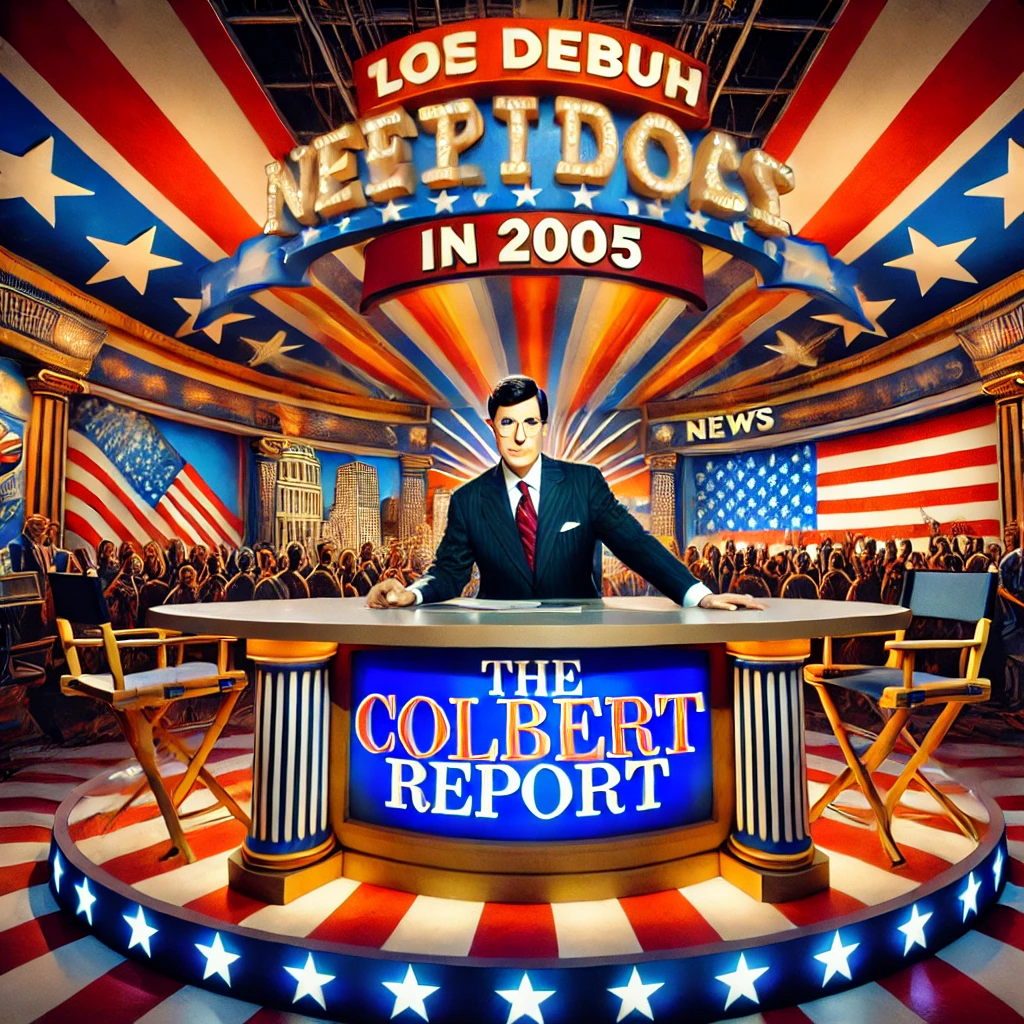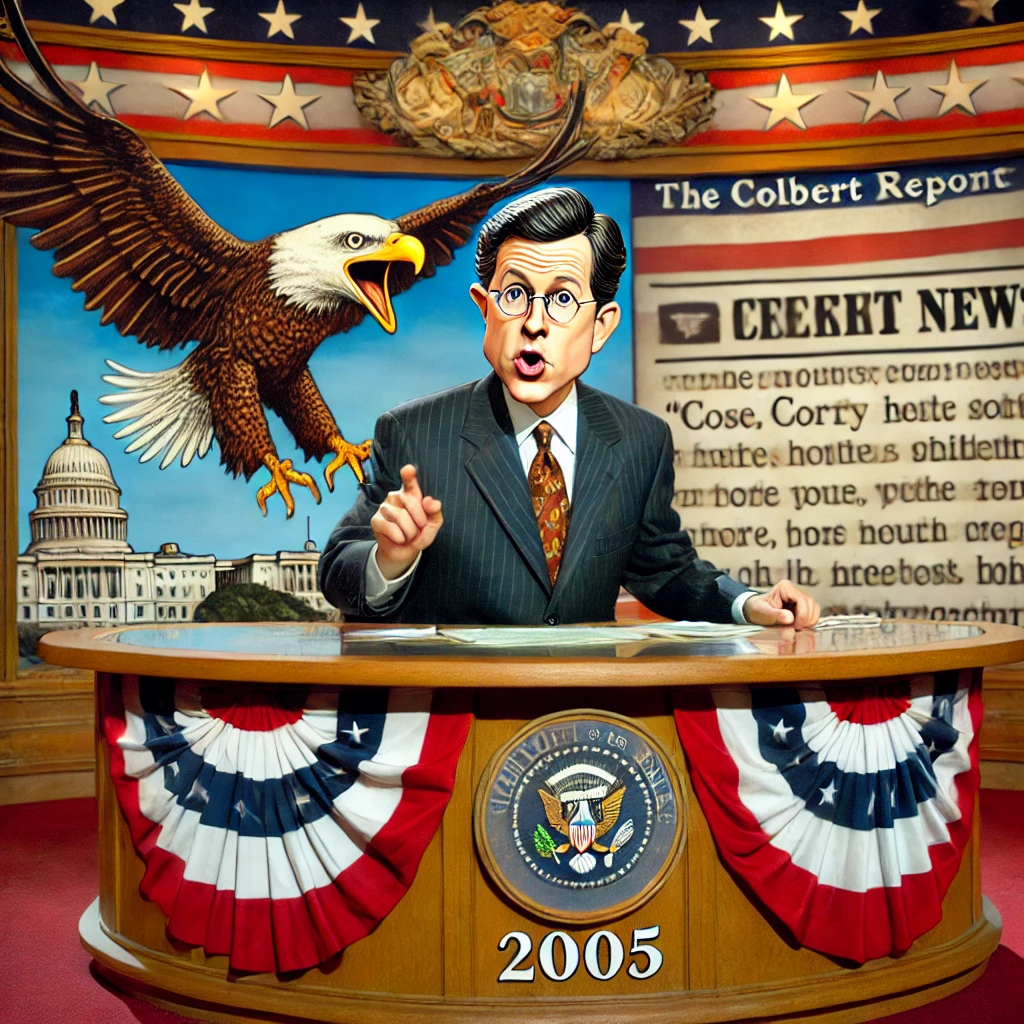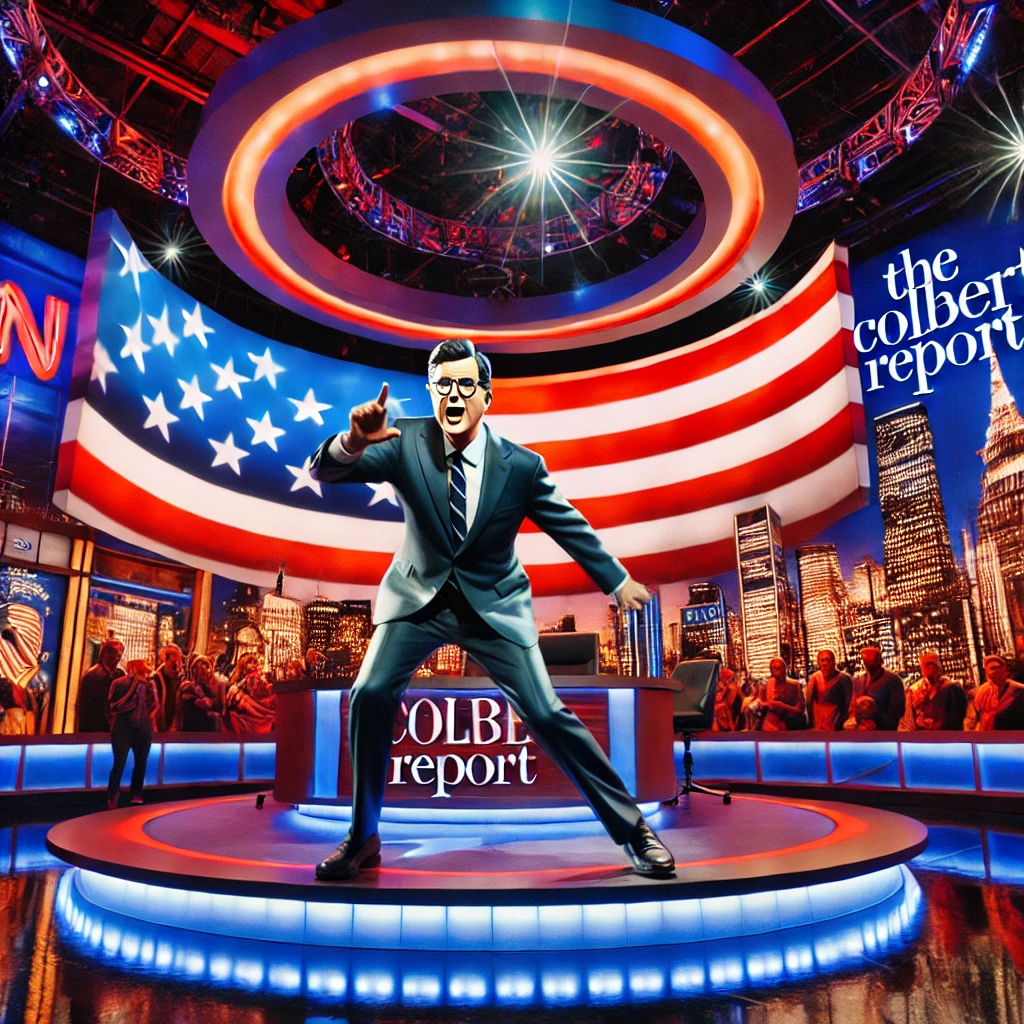On October 17, 2005, The Colbert Report premiered on Comedy Central, introducing audiences to a unique blend of satire and comedy that would redefine late-night television. Hosted by Stephen Colbert, the show parodied traditional news formats, offering sharp commentary on current events and the media landscape. With its witty humor and clever social critique, The Colbert Report quickly became a cultural phenomenon and a staple of American comedy.

The Concept and Creation
The Colbert Report was conceived as a satirical response to the political commentary and news coverage prevalent in American media. Stephen Colbert, who gained fame as a correspondent on The Daily Show with Jon Stewart, took on the persona of a conservative pundit, often drawing inspiration from real-life commentators. The show’s format mimicked that of traditional news programs, complete with a desk, a news ticker, and exaggerated news segments.
The debut episode set the tone for the series, featuring Colbert’s trademark blend of humor and irony. With a self-assured demeanor and a knack for wordplay, he tackled a range of topics, from politics to pop culture, often employing sarcasm to highlight the absurdities of contemporary society. The show’s clever writing and Colbert’s charismatic delivery quickly resonated with viewers, establishing it as a must-watch program.

Cultural Impact and Popularity
The impact of The Colbert Report extended beyond its comedic value; it became a vital platform for political and social commentary. Colbert’s satirical take on current events challenged viewers to question the information they consumed and the motivations behind media narratives. The show’s success was indicative of a growing appetite for alternative news sources and a desire for critical examination of mainstream media.
Colbert’s ability to blend humor with insightful commentary garnered him a dedicated fan base and significant acclaim. The show won numerous awards, including several Emmy Awards, and Colbert became a prominent figure in the realm of political satire. His unique approach to comedy allowed him to engage with serious issues while maintaining a lighthearted tone, making complex topics more accessible to audiences.
The Legacy of The Colbert Report
The Colbert Report concluded in December 2014, but its legacy continues to resonate in the world of comedy and media. Colbert’s influence on political satire has paved the way for a new generation of comedians who employ similar techniques to engage with current events. Shows like Last Week Tonight with John Oliver and The Daily Show have continued to explore the intersection of humor and journalism, reflecting the enduring appeal of this style of commentary.

Colbert’s transition to The Late Show with Stephen Colbert further solidified his place in late-night television. While maintaining his signature wit, he adapted to a broader format, engaging with celebrity interviews and diverse topics. His ability to evolve while staying true to his comedic roots underscores the lasting impact of his work on The Colbert Report.
Conclusion
The debut of The Colbert Report on October 17, 2005, marked a significant moment in the evolution of television comedy and political commentary. Stephen Colbert’s unique brand of satire not only entertained but also encouraged viewers to think critically about the information presented to them. As we reflect on the legacy of The Colbert Report, we recognize its role in shaping the landscape of political satire and its lasting influence on how we engage with news and media today. The show stands as a testament to the power of comedy in addressing societal issues, proving that laughter can be a catalyst for reflection and change.
